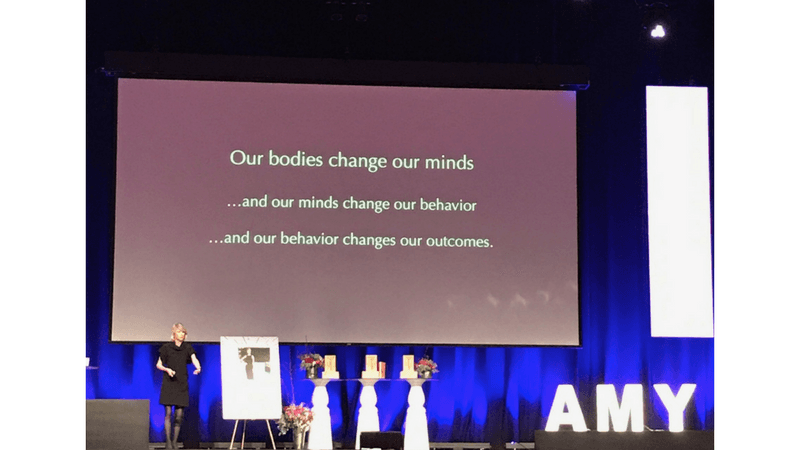Strike a Pose - a Power Pose
I was fortunate enough to attend a very inspirational Business Chicks event this week with the speaker being the fantastic Amy Cuddy. Amy Cuddy is a Havard researcher and social psychologist and a world-renowned expert on mastering your body language and building presence. Her TED talk, Your Body Language Shapes Who You Are, is the second most viewed TED talk of all time with over 40 million views.
Amy advised that we need to access our personal power to be “present”. Presence is being attuned to and able to access and express your authentic best self.
The strategy she advocates to bring out your personal power is ‘the power pose’. If you have not heard of this phrase, which is now well-known and tweeted often, a ‘power pose’ is one that extends the body - stretching out tall, arms open, taking up space.
This has been proven (in studies on both animals and humans) to give you a sense of power which in turn affects your thoughts, feelings, behaviour and therefore outcome of any given situation.

My top 3 tips you can use in an interview situation:
Prepare before you go in – hold a power pose (even for as little as 10 seconds) before entering the office you’re going to attend an interview
Open posture – Don’t go into the interview holding the power pose FYI! Keep an open posture though, keep your hands away from torso and it will allow the feeling to continue and those you are with to feel you are present.
Attend to others posture - be conscious of other peoples’ posture, whether they are closed or open and whether what you are saying or doing can change this.
So get powerful, start posing and “don’t fake it until you make it, fake it until you
become it”, I am certainly going to be trying it!










